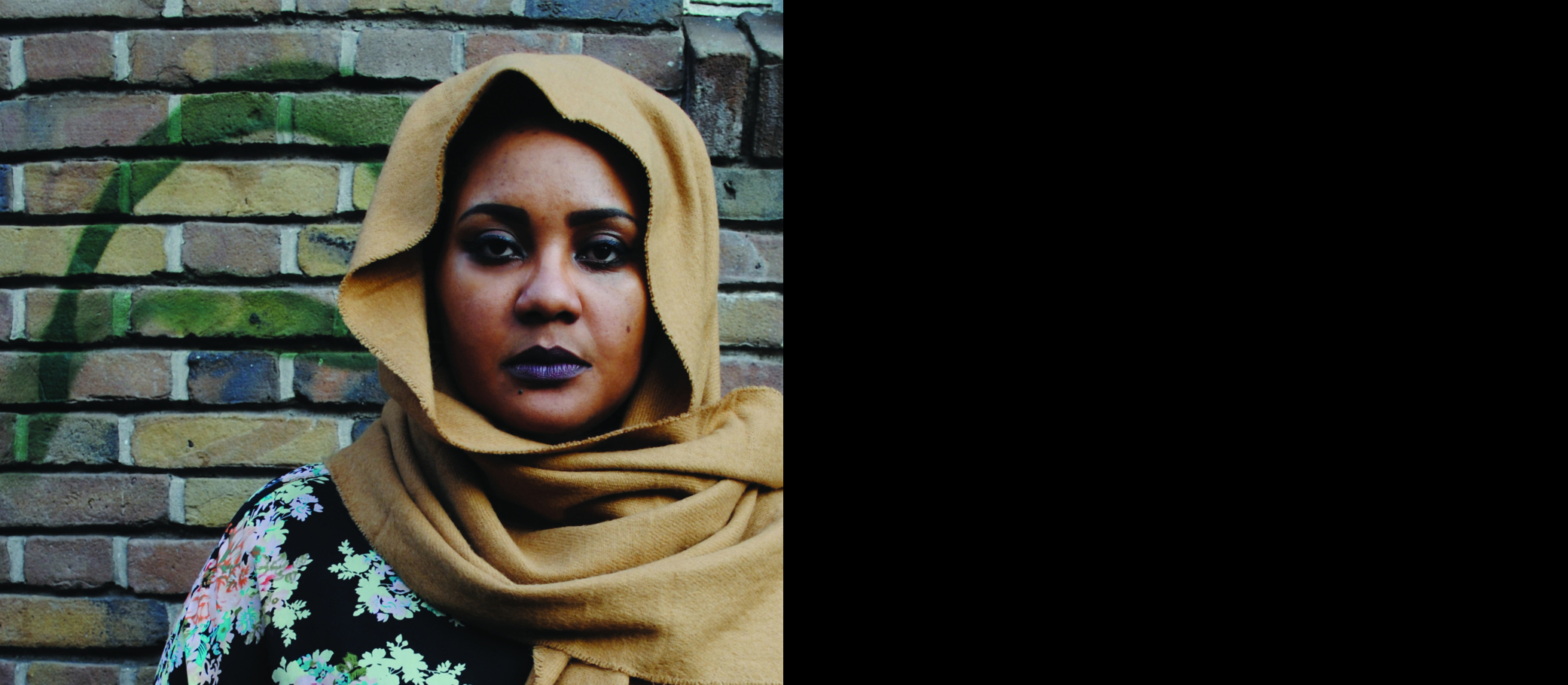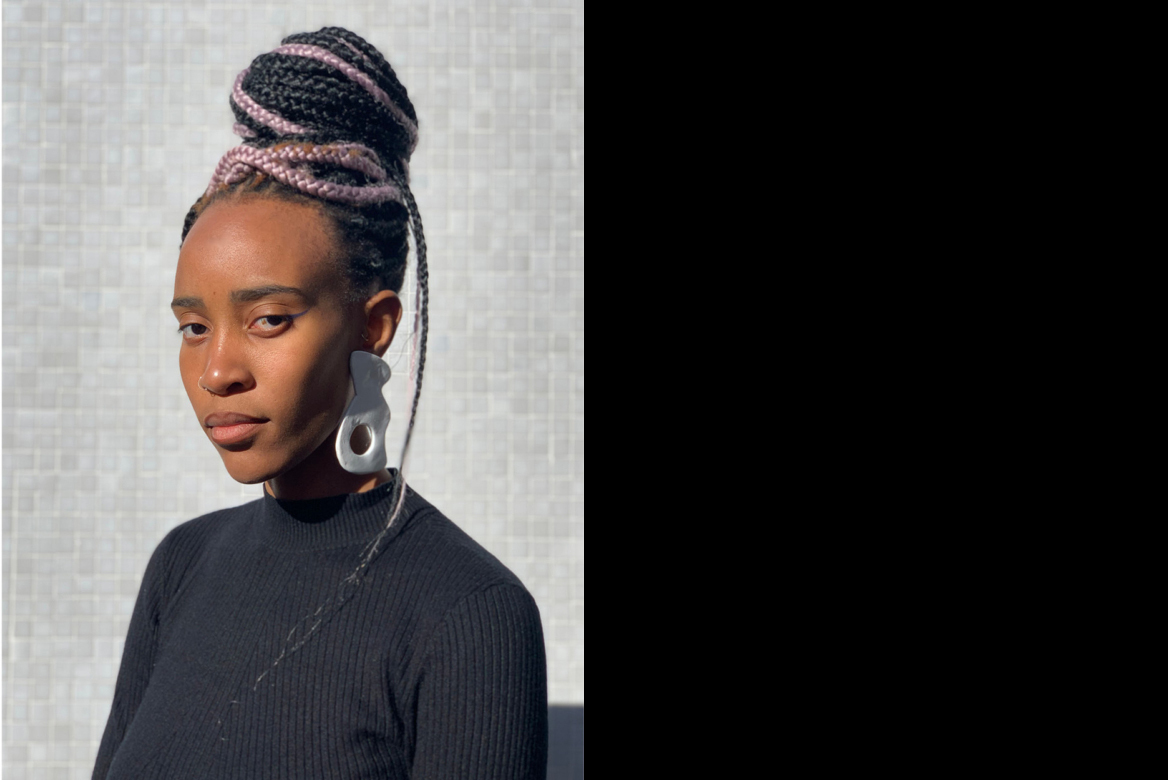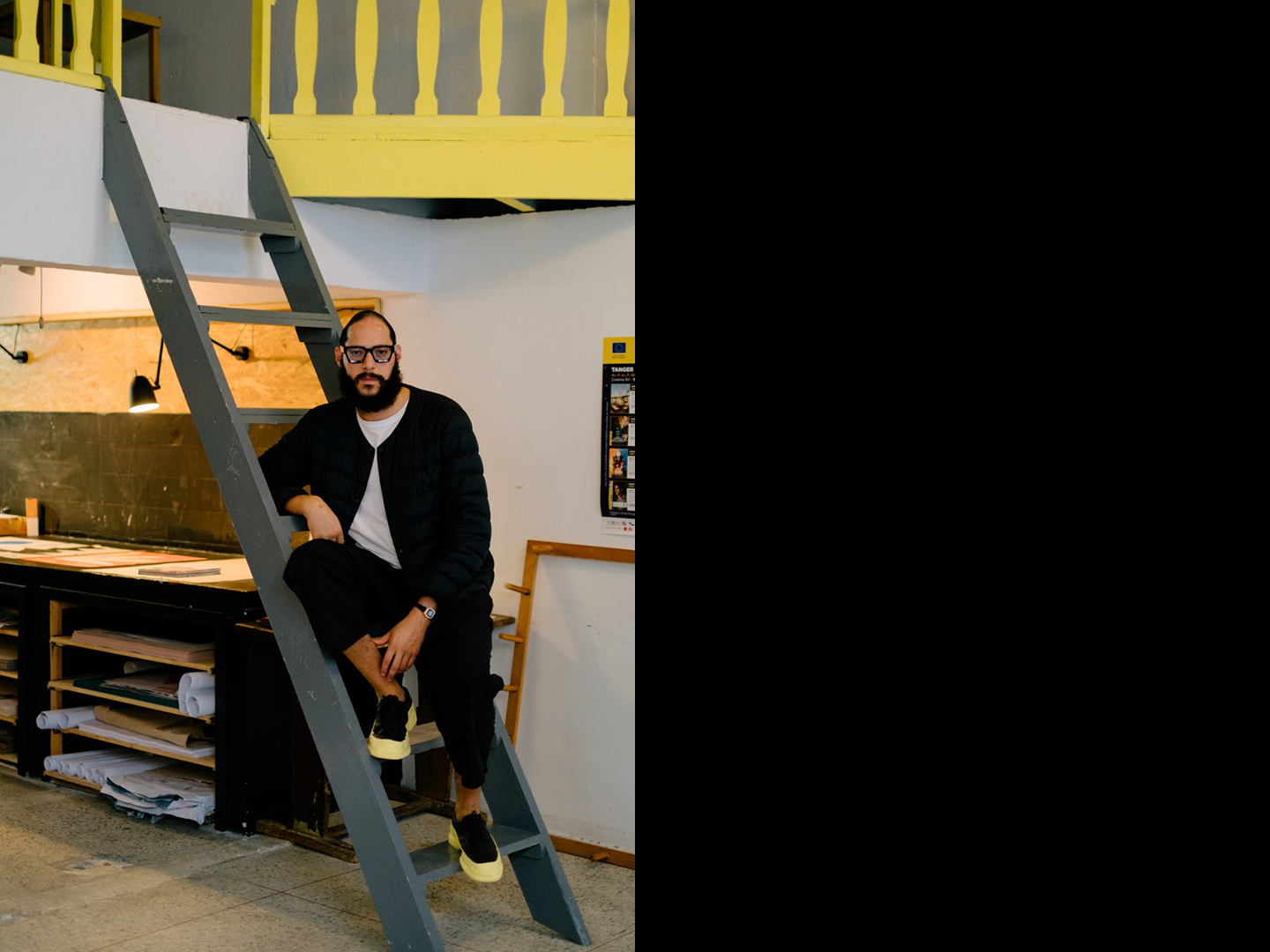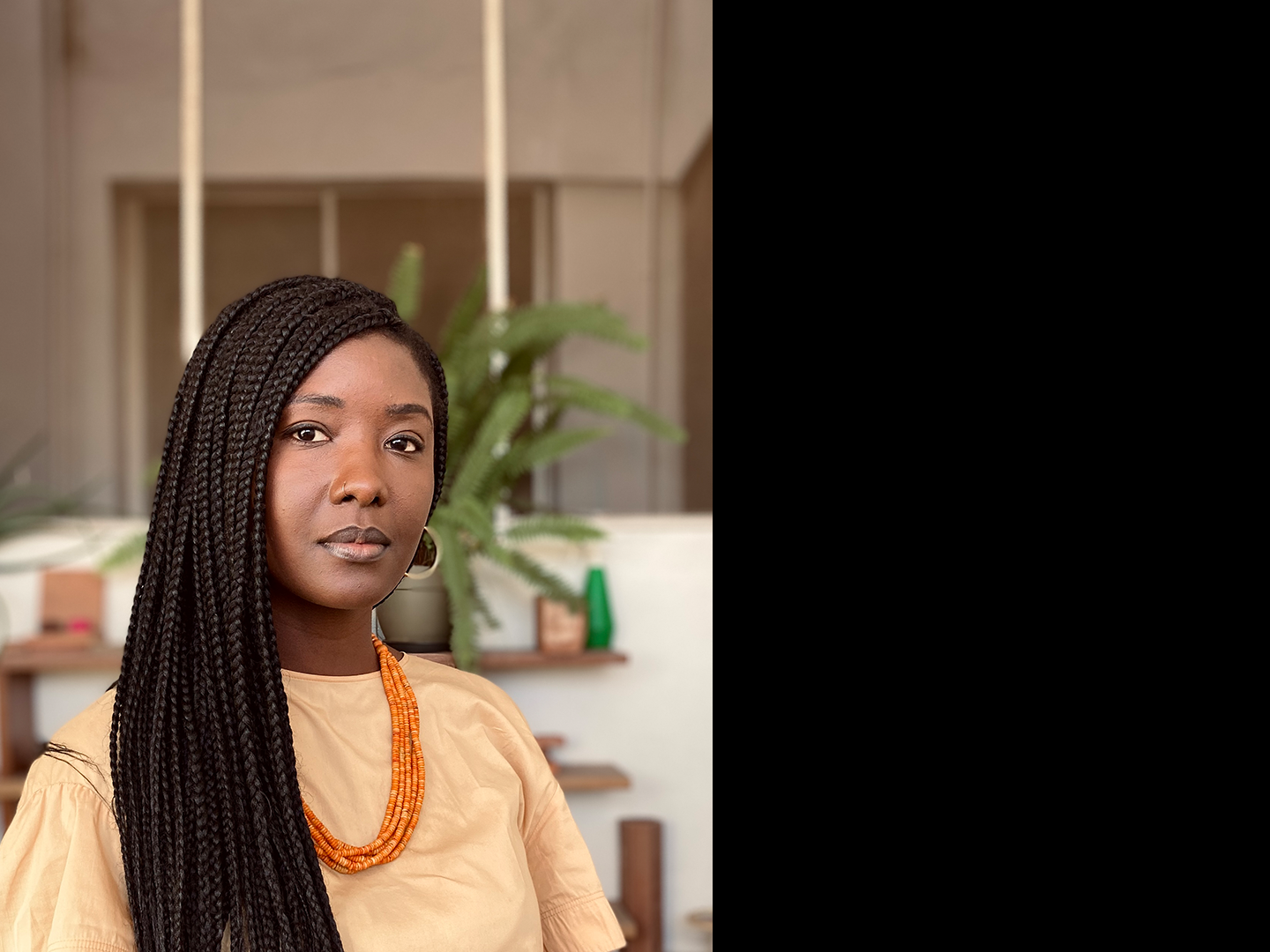These selected mentors will guide the12 artists and designers who will be reimagining the future of their cities through design and creative problem-solving as part of the Building Beyond mentorship programme in 2023.
This list of mentors includes Artist, architect, critical space practitioner from Sudan, Ola Hassanain; architect, anthropologist and tech entrepreneur from Togo, Khensani Jurczok-de Klerk; curator and cultural practitioner from Morocco Hicham Bouzid and co-founder of WOROFILA, a collective of architects and engineers from Senegal and Cameroon, Nzinga Mboup.
Ola Hassanain

Ola Hassanain trained her focus on the subtle politics of space – namely, how built spaces react to and reinforce violence from state entities, which in turn, creates a built environment that reflects, responds to, regulates the lives of those who inhabit it.
Her most recent work explores an idea of space as discourse, an expanded notion of space that encompasses political and environmental questions. Her work tries to develop a spatial vocabulary that follows how ruptures presented by political events, make it possible to aspire to new kinds of ecologies. Ola’s development of critical spatial practice is partly informed by her post-academic training which includes an ongoing Rijksakademie Residency, BAK fellowship 2017-2018, and teaching in HKU University of the Arts Utrecht, and Sandberg Institute amongst others.
Khensani Jurczok-de Klerk

Khensani Jurczok-de Klerk is an architectural researcher, designer, and performer from South Africa. She centres practicing intersectionality through research and design. Her view of intersectionality questions and imagines how efficiency and narratives of the built environment can be more sustainable through ethically social and ecological practices. She is the founder of Matri-Archi(tecture), a collective based between South Africa and Switzerland that aims at empowering African women as a network dedicated to African spatial education.
Her recent research at the University of Cambridge focused on typologies of safe space with aims at reducing Gender-based violence in cities. Through her multidisciplinary approach, Khensani finds educational value in spatial, written and auditory explorations centring storytelling as critical to spatial practice. She researches and teaches at the chair of Affective Architectures with Professor An Fonteyne at the ETH Zürich in Switzerland and collaborates with architectural practice Studio8Fold in London. She hosts a podcast called KONTEXT and serves as an editorial contributor at the Architectural Review in London. She is based between South Africa and Switzerland.
Hicham Bouzid

Born in Tangier (Morocco), Hicham Bouzid is a cultural practitioner and independent curator. Since 2010, he collaborated with several art and cultural institutions in Morocco and abroad. After serving for 3 years as a bookseller at Librairie Les Insolites in Tangier, he moved to Marrakech in 2013 to join the team launching Le18, Derb El Ferrane, a multidisciplinary cultural Riad and art residency in the Medina of Marrakech.
Bouzid is the co-founder and artistic director of Think Tanger, a cultural platform that explores the urban space and social fabric of Tangier through projects operating at the crossroad of contemporary art, design, participatory research and urban fields, featuring also an atelier for visual art production focusing on printing practices. He recently published MAKAN, a cultural magazine that tackles questions about art, architecture and urbanism.
His curatorial practice produces various outputs: exhibitions, seminars, talks & podcasts, open studios, prints and books. He uses all these mediums to reflect on todays complex dynamics of Morocco, studying more specifically the impact of the neoliberal polices undertaken since the past 25 years on the urban and social scapes.
Nzinga Mboup

Nzinga Biegueng Mboup is a Dakar-based, registered Senegalese architect who studied at the University of Pretoria and worked for two years in Johannesburg. She then continued with a Masters in Architecture at the University of Westminster in London and subsequentely worked for three years at Adjaye Associates, predominantly on the IFC headquarters in Dakar. In 2019, she co-founded WOROFILA, an architectural practice specialized in bioclimatic design and construction using earth and biomaterials sourced locally. The aim of WOROFILA is to promote architecture that is durable and in harmony with the climate.
In addition to her architectural practice, Nzinga has been a researcher for the African Futures Institute since 2022 and has co-authored two research projects. The first one called Dakarmorphose, started in 2017 in collaboration with Carole Diop, is an ongoing research project on the evolution of Lebu villages and the urban and cultural heritage of the city of Dakar. Dakarmorphose was exhibited at the Dakar Art Biennale of 2018 and 2022 and has informed various papers and conferences. The second research project called Habiter Dakar, started in 2019 in collaboration with Caroline Geffriaud and the Goethe-institut Dakar, focusing on the evolution and problematics of housing in Dakar.
About The Prince Claus Fund
Established on 6 September 1996 as a tribute to HRH Prince Claus’s dedication to culture and his belief in its role in the development of all societies, The Prince Claus Fund has more than 25 years of experience in supporting cultural and artistic initiatives in challenging circumstances. The Fund’s mission is to support, connect and celebrate cultural practitioners in Africa, Asia, Latin America, the Caribbean and Eastern Europe, especialy in places where culture is under pressure. Since its founding, the Fund has been a successful establishment and liasion in the arts and cultural sector, creating opportunities for connection and exchange, stimulated cultural expression and preserved cultural heritage in a variety of ways.


